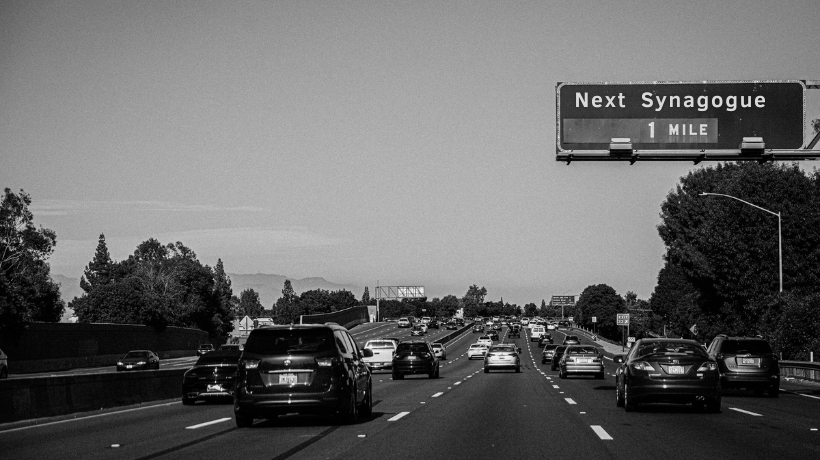When we moved to Portland and needed to figure out where to live, Duncan and I had a lot of decisions to make. What was our price range? How walkable did we want the area to be? What was our ideal proximity to the synagogue? Would it be wise to buy a house that needed a lot of work done, or should we purchase a home that was move-in ready? What it came down to was building a community in which we could immerse ourselves, and that meant finding the balance between living as close to the synagogue as we could afford and having to do a minimal amount of work on our home (at least when we moved in). Here we are, 10 years later, and we certainly made the right choice for us.

Specifically, we’ve found that living in the location we chose has meant that we’re able to be physically present with so many people with relative ease, and in moments of hectic chaos, we’re also able to have people easily jump in to help with carpool, dinners, or a quick hug.
This week we read Parshat Balak, a narrative filled with opportunities for taking the right or wrong action and saying the right or wrong words. You know this parshah – it’s of course the one with the talking donkey. Parshat Balak is the story of Balak, son of Tzipur and king of Moav, who solicits Balam the “prophet” to curse the children of Israel. God allows Balam to go to the land of Moav, but only if he will speak what God tells him to say. On the way there, Balam becomes frustrated with his donkey, who refuses to move. As it turns out, the donkey sees an angel of God in the road. Balam cannot see the angel, only the donkey can, so Balam gets angry at his stubborn animal and beats the donkey.
A verse from this portion is perhaps one of the most famous verses in the Torah. Put to any number of melodies, you probably know it simply as “Mah Tovu.” It’s the curse-turned-to-blessing “How wonderful are the tents of Jacob, the dwellings of Israel,” which praises the Israelites for creating tight-knit and close neighborhoods. What Balam is really seeing (and commenting on) is how the Israelites are “set apart,” which he considers a bad way to live. However, the Torah reframes this to say that their intentional community building is actually how they preserved tradition and their identity, not unlike our close-knit communities today.
This could quickly turn into a drash on the pros and cons of assimilation and acculturation. We often focus on how this comes out sounding like a blessing, but just like in our Torah portion, there’s a version that can feel like a curse too, depending on how you view the benefits of “closeness.” Instead, I think the fundamental lesson is the power of community. By living in proximity to others who share our values and traditions, we’re able to connect more deeply and support more vibrantly. I’m grateful every day to live in community with you.



